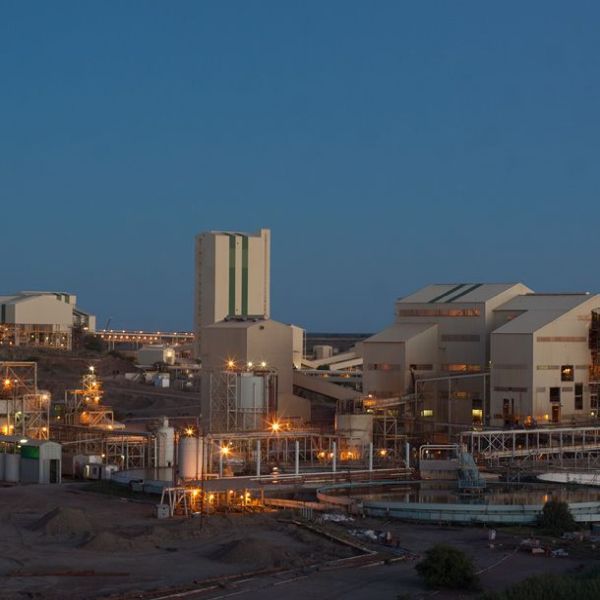When Botswana’s President demands a larger share of the profits, Anglo American’s management should consider issuing a profit warning. “If we don’t reach a win-win situation, each side will have to pack up and go home,” President Masisi said last Sunday in his home village of Moshupa (African News, 13 February 2023). His public demand for a fairer share of the profits from De Beers finally brings into the open a claim that has, until now, remained behind the closed doors of negotiating rooms.
Before trying to understand the potential operational scenarios ahead of us, let’s try first to answer a challenging but essential question that impacts these negotiations. Is President Masisi’s demand fair and reasonable, or is it just another African president following in the footsteps of predecessors who released the colonialist genie from the bottle? When President Mugabe of Zimbabwe redistributed white farmlands back in the year 2000, he brought only chaos and devastation to his country. Very few saw fairness and justice in the aggressive takeover of helpless white farmers. But this is Botswana, one of the most stable African countries, with a thriving democracy and a long-term reputation for keeping up with contractual obligations. We are not talking about farmlands either, but about the fate of the majority of the 34 per cent of the world’s diamond production sold by De Beers (Bain’s Report 2022). We are talking about the fate of every third stone that one sees through the thick armored glass of jewelry shops around the world.
For a public company like Anglo American, fairness questions could prove to be a nightmare. The mining giant that owns 85 per cent of De Beers (15 per cent is held by the Botswanan government), would rather discuss the complex question of the likely quantity of diamonds hundreds of meters below the surface – a key parameter in determining the value of a diamond mining company. But there is no scientific or mathematical theory to create a fairness formula to calculate a fair split in profits and assets between two parties. The managements of De Beers and Anglo American are left with the challenge, to find the almost-philosophical justification for the fairness of their share in the profits and the mineral assets of Botswana.
Let’s not forget what exactly is the issue on the table. President Masisi is not only talking about 75 per cent of Botswana’s run-of-the-mine diamonds remaining in the hands of De Beers. He’s talking about the core mining rights of Debswana, the mining company that’s a 50-50 split between Botswana and De Beers.
He cannot be compared to President Mugabe, with his wild and unfair abrupt actions. President Masisi is not alone in seeking a fairer division. Chile’s copper and lithium mining rights are being discussed in the country’s parliament, Israel has changed its laws regarding mining rights after the discovery of offshore gas fields, and the Chinese have taken over rare earth mines. The fair distribution of wealth is a legitimate concern when returns on investment reach multiples of thousands.
Even a cursory glance at the current sales agreement between De Beers and Botswana raises serious questions about fairness. The government’s diamond experts don’t really know, in detail, the true profit generated from the Botswanan diamond mines. De Beers mixes the Botswanan stones with diamonds originating from its Namibian, South African and Canadian mines (except for 10-ct-plus which are sold individually). Once mixed into parcels, no one can really tell the true direct share in profit that the Botswanan diamonds contribute to De Beers bottom lines. It is all based on theoretical estimations and price lists. And let’s not forget that De Beers’ experts knew all about diamond prices more than half a century before any diamonds were discovered in Botswana. In the past years De Beers generated billions of accumulated profits to its mother company, so it’s hard to believe that the mixing of the diamonds ever caused De Beers to lose a single dollar.
Is it truly beneficial for the Botswanan government to have its diamonds mixed with other mines from other countries? Mixing diamonds means mixing interests. Obviously, the Namibian or South Africa governments promote the creation of jobs in their own countries just like it is a legitimate and crucial objective of the Botswanan government. It is obviously hard to promote job creation when the interests of several countries are even mixed with the interests of an international miner that wants to enhance its own profit margins with as few employees as possible.
On the other hand, Botswana, De Beers and Anglo American have a lot to be proud of. During the past 50 years, Anglo and De Beers were the main contributors to the Botswanan government’s source of income. It would, therefore, be only fair to give these mining companies a major credit for supporting the creation of one of the most successful economies in the sub-Saharan region. For years, Botswana has been ranked by Transparency International as the least-corrupt African country. Life expectancy in Botswana is currently 66 years (World Bank Data), 10 years above the overall African average of 56 years. But the gap between Botswana and industrialized nations is still huge. The Botswanan GDP per capita is only $6,800, way below the developed countries’ threshold of $22,000. 28 per cent of the population has no access to electricity but above all the unemployment rate is well above 20 per cent (the latest update is 24.7 per cent in 2021).
So, could these fundamental economic numbers improve with President Masisi’s intentions? The current unemployment rate in Botswana, means that over half a million Botswanan citizens are jobless. On the other hand, hundreds of thousands of diamond polishers are processing the precious natural resources of Botswana in other countries, outside of Botswana. Could this drastically improve? Is it fair? I will let you be the judge.
This Blog was originally published on www.idexonline.com


